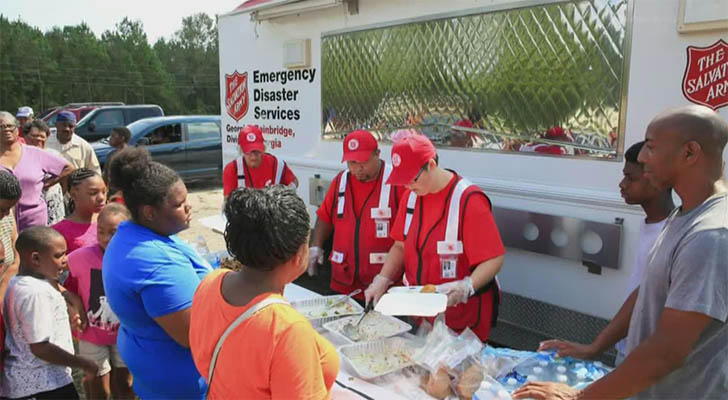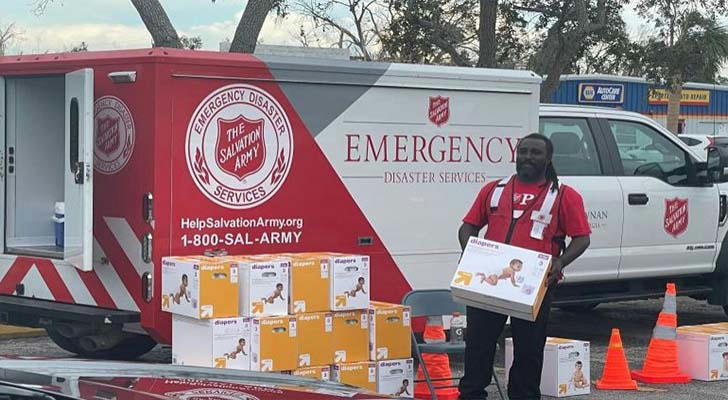The Salvation Army: Emergency Financial Assistance to Help Low-Income Families Overcome Hardships
In today’s society, many low-income families face constant economic pressure. With the challenges of paying for housing, food, medical care, and daily living expenses, they often struggle to make ends meet. Unexpected events, such as illness, job loss, or emergencies, can quickly push these families into financial crisis. The Salvation Army offers emergency financial assistance to help cover essential costs like utility bills, rent, and medical expenses, providing families with the resources they need to overcome immediate hardships and regain stability.

1. The Importance of Emergency Financial Assistance
Emergency financial assistance is designed to help families who are struggling due to unforeseen circumstances. Without such help, they may face severe consequences, such as losing access to utilities, being evicted, or worsening health issues. For low-income families, even a small financial setback can have devastating effects. The Salvation Army provides timely support, ensuring that families can keep their homes, access essential services, and address urgent medical needs, all while working toward long-term stability.

2. Scope of Emergency Assistance
The Salvation Army focuses on three critical areas of financial need:
Utility Bills and Gas Payments: The Salvation Army helps families pay overdue utility bills to ensure they can maintain essential services like electricity, water, and gas.
Rent Assistance: For families facing eviction due to job loss, illness, or other emergencies, The Salvation Army provides rental assistance to prevent homelessness.
Medical Expenses: The Salvation Army offers help with medical bills, ensuring families can access necessary healthcare and avoid accumulating debt due to unexpected health emergencies.

3. The Application Process
To apply for emergency financial assistance, families must submit documentation such as:
Proof of Income: To show that the family qualifies as low-income.
Proof of Emergency: Documentation like a doctor’s note or unemployment verification to confirm the cause of financial hardship.
Family Situation: Information about the family’s health, children’s education, and other relevant factors.
The application process is designed to be quick and straightforward. Families can apply through local Salvation Army community centers or online. Once an application is received, staff members assess the need and provide assistance as quickly as possible.

4. Case Study: The Johnson Family
Sarah Johnson, a single mother of two, was struggling to keep up with bills after losing her job due to a health issue. Although she had health insurance, it didn’t cover all of her medical expenses, and her savings quickly ran out. With no income, Sarah was unable to pay her utility bills or rent, and faced the prospect of eviction and disconnection of services.
In a desperate situation, Sarah applied for help from The Salvation Army. After submitting the necessary paperwork, she received emergency financial assistance that covered part of her rent and utility bills. This support allowed Sarah to keep her family housed and maintain essential services while she worked on her recovery.
A few months later, Sarah’s health improved, and she found a new job. The timely assistance from The Salvation Army gave her the breathing room she needed during a difficult time. “I honestly don’t know what I would have done without their help,” Sarah said. “It gave me the chance to focus on getting better and getting back on my feet.”

5. The Social Impact of The Salvation Army
Beyond providing immediate relief, The Salvation Army’s emergency assistance plays a key role in fostering community stability. By helping vulnerable families, the organization reduces the risk of homelessness and promotes social well-being. Public fundraising and charity campaigns further extend the reach of this support, ensuring that more families in need receive timely aid.
The Salvation Army’s work not only helps families overcome short-term crises but also empowers them to regain self-sufficiency. By alleviating immediate burdens, families are better positioned to tackle long-term challenges and regain their independence.

6. Conclusion
The Salvation Army’s emergency financial assistance is a critical lifeline for low-income families facing unexpected hardships. By helping families pay for utilities, rent, and medical expenses, The Salvation Army prevents deeper financial crises and provides emotional support during tough times. As shown by Sarah Johnson’s experience, this assistance can be life-changing, enabling families to stay healthy, housed, and secure. Ultimately, The Salvation Army’s efforts go beyond charity, reflecting a deep commitment to social responsibility and offering hope to those in need.
